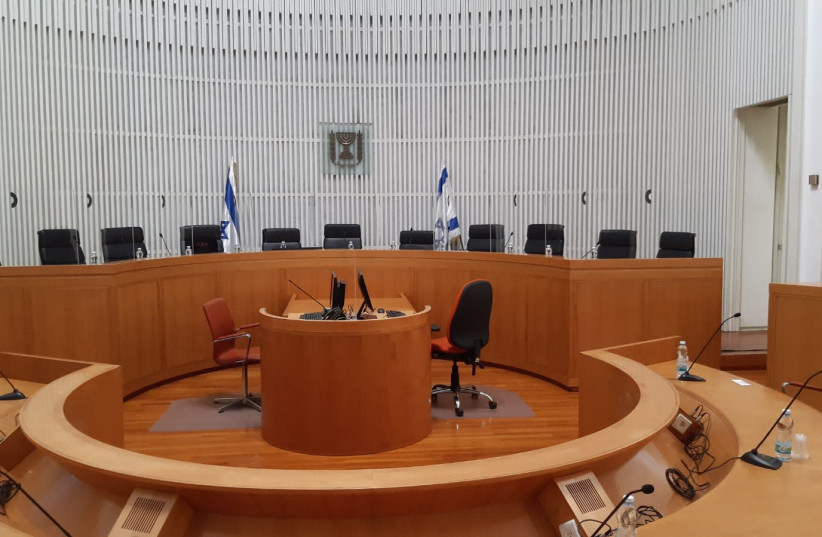The High Court of Justice partially accepted an appeal by the Palestinian Duweik family against an eviction order which was issued against them on the grounds that the land was owned by Jews before 1948.
Silwan is located at the southern end of the Temple Mount near the Dung Gate and is home to the City of David archaeological site, believed to be the site of the ancient city of Jerusalem during and before the Davidic dynasty and First Temple Period.
The Jerusalem neighborhood originally housed Yemenite Jews who arrived in Jerusalem in the late 1800s. The Jewish residents were forced out of the neighborhood and their homes were razed in 1938 by British authorities amid dangerous Arab revolts in the area.
Jewish heirs can reclaim property left in east Jerusalem, according to Israeli law. The Jerusalem District Court accepted a request by the Ateret Kohanim organization in 2001 to be named trustees of the land on the grounds that it was Jewish property. The organization became the trustees of the Benvenisti Trust, a Jewish trust that had been active in the area in the early 1900s.
After receiving ownership of the land, Ateret Kohanim began lawsuits in effort to evict the Arab residents of the neighborhood, including a suit filed in October 2014 to evict the Duweik family.

The Jerusalem Magistrate's Court and the Jerusalem District Court have both already rejected appeals by the Duweik family, who filed the appeal to the High Court, against the eviction orders. A number of other families' appeals against the orders have also been rejected and a number of families have already been evicted.
The Duweik family has lived in the neighborhood since 1965 when Khamis Duweik bought the rights for their property from a man who had been leased the property by the Benvinisti Trust.
Duweiks claim statute of limitations applies
The Duweik family claims that because decades passed between the time they purchased the home in 1965 until the eviction claims were filed, the statute of limitations determines that Ateret Kohanim has lost its right to demand the eviction, according to Peace Now. Ateret Kohanim, on the other hand, claims that the statute of limitations should only be counted from the moment that it took control of the property from the Israeli Administrator General in 2002, as until then it was considered "public land" on which the statute of limitations did not apply.
The family additionally claimed that the Benvenisti Trust had owned the buildings it had built in the neighborhood, not the land they sat on, meaning that since the buildings were demolished, the trust has no more assets. The courts have not accepted this claim so far.
Finally, the family claimed that the houses in which they live in Silwan were built in "good faith." meaning that those building the homes believed themselves to be the owners of the land on which they were building. According to Israeli land law, under certain conditions, they could then purchase the land and could not be evicted. The courts have rejected this claim so far because the land was considered "public land" when it was held by the Administrator General on which the good faith clause does not apply and not all the conditions of the clause applied in this case.
High Court decision goes against decisions of preceding courts
Up until the High Court decision on Thursday, the courts had all accepted Ateret Kohanim's argument.
In the ruling on Thursday, the High Court decided that the case should be returned to the Jerusalem Magistrate's Court which should rule on whether or not the statute of limitations applies in this case or not. The court added that the Administrator General must take part in the proceedings so that he can express his position on a number of questions that need to be decided in the case.
The court stressed that the ruling on Thursday does not apply to other proceedings or decisions in lawsuits conducted by Ateret Kohanim against other defendants. The court additionally pointed out Ateret Kohanim has offered the Duweik family "generous compensation" and will continue to do so even after a judgment is rendered.
In October of last year, the High Court held a hearing on the case which largely centered around the status of the property in question before 1948 when the Jordanians took over the area, during the period when it was controlled by the Jordanians and after 1967 when the Administrator General took authority over the property.
While Ateret Kohanim's lawyers argued that the status of the property was clear, the judges and the representative of the attorney-general at the meeting were insistent that the matter is not so clear and required further deliberation.
